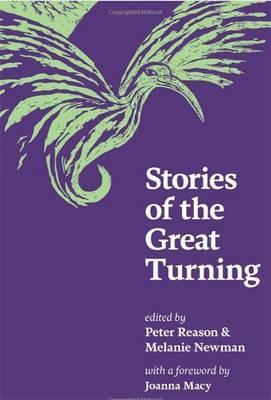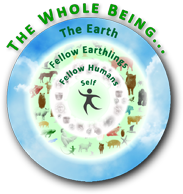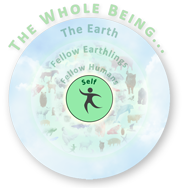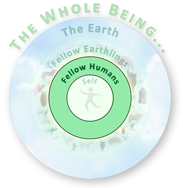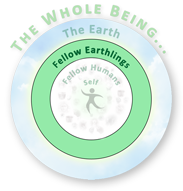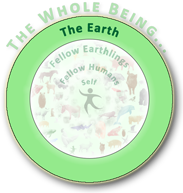Resource Library
To narrow down the list to only resources personally endorsed by CNCL, tick the “CNCL-Endorsed” box.
Please let us know if you find any errors or dead links.
Click here
for a list of…![]()
Broad-Coverage Independent News
& Media Sites
“Winona LaDuke’s published books. “Winona LaDuke is one of the world’s most tireless and charismatic leaders on issues related to climate change, Indigenous rights, human rights, green and rural economies, grass-roots organizing, local foods, alternative sources of energy and the priceless value of clean water over a career spanning nearly 40 years of activism.” “The goal of the Association for Global New Thought’s programs in spiritually guided activism is to support concerned and informed citizens in their emerging role as ethically motivated community leaders. Spiritually guided activism is a term pioneered by the Association for Global New Thought and like-minded organizations to describe individuals who are spiritually mature and believe that, from this worldview, we need to take action in our communities to create positive change in this nation and beyond.” “The St. Louis Animal Rights Team is a not-for-profit educational/activist group, formed in 1985, and incorporated as a 501(c)(3) charitable organization in 1988. Our goals are to: -Educate society about the rights of all species to live freely and die naturally. -Expose the harm and suffering caused by the denial of animals’ natural rights. -Promote the adoption of lifestyles compatible with the animal rights philosophy. -Promote the reform of social institutions to be compatible with animal rights.” “Stanford Social Innovation Review (SSIR) is an award-winning magazine and website that covers cross-sector solutions to global problems. SSIR is written by and for social change leaders from around the world and from all sectors of society—nonprofits, foundations, business, government, and engaged citizens. SSIR’s mission is to advance, educate, and inspire the field of social innovation by seeking out, cultivating, and disseminating the best in research- and practice-based knowledge. With print and online articles, webinars, conferences, podcasts, and more, SSIR bridges research, theory, and practice on a wide range of topics, including human rights, impact investing, and nonprofit business models. SSIR is published by the Stanford Center on Philanthropy and Civil Society at Stanford University” “We live in a world of screens. The average adult spends the majority of their waking hours in front of some sort of screen or device. We’re enthralled, we’re addicted to these machines. How did we get here? Who benefits? What are the cumulative impacts on people, society and the environment? What may come next if this culture is left unchecked, to its end trajectory, and is that what we want? *Stare Into The Lights My Pretties* investigates these questions with an urge to return to the real physical world, to form a critical view of technological escalation driven by rapacious and pervasive corporate interest. Covering themes of addiction, privacy, surveillance, information manipulation, behaviour modification and social control, this film lays the foundations as to why we may feel like we’re sleeprunning into some dystopian nightmare with the machines at the helm. Because we are, if we don’t seriously avert our eyes to stop this culture from destroying what is left of the real world…” A list of books by The Worldwatch Institute. “Through research and outreach that inspire action, the Worldwatch Institute works to accelerate the transition to a sustainable world that meets human needs. The Institute’s top mission objectives are universal access to renewable energy and nutritious food, expansion of environmentally sound jobs and development, transformation of cultures from consumerism to sustainability, and an early end to population growth through healthy and intentional childbearing. Founded in 1974 by farmer and economist Lester Brown, Worldwatch was the first independent research institute devoted to the analysis of global environmental concerns. Worldwatch quickly became recognized by opinion leaders around the world for its accessible, fact-based analysis of critical global issues. Today, Worldwatch develops innovative solutions to intractable problems, emphasizing a blend of government leadership, private sector enterprise, and citizen action that can make a sustainable future a reality.” “Statewatch is a non-profit-making voluntary group founded in 1991 to monitor the development of the EU state and civil liberties. It is comprised of lawyers, academics, journalists, researchers and community activists. Its European network of contributors is drawn from 18 countries. Statewatch encourages the publication of investigative journalism and critical research in Europe the fields of the state, justice and home affairs, civil liberties, accountability and openness. One of Statewatch’s primary purposes is to provide a service for civil society to encourage informed discussion and debate – through the provision of news, features and analyses backed up by full-text documentation so that people can access for themselves primary sources and come to their own conclusions. Statewatch is the research and education arm of a UK registered charity and is funded by grant-making trusts and donations from individuals.” “Statistics for Action (SfA) is a collaboration between TERC and environmental advocacy organizations to help people in communities affected by environmental contamination. SfA can help people: -Understand terms, units, and concepts in environmental data. -Analyze data to help communities strategize. -Assess risks to health from environmental contamination. -Communicate key data to decision-makers and the community.” “2007 was a landmark year in the movement to stop global warming, a year when Americans came together in communities across the country to voice one powerful message. In April, at 1400 iconic places across the nation, we made history and united around a common call to action. Then in November we came together under 1 Sky to present our leaders with the climate solutions that science and justice demand. Now it’s up to all of us keep this movement moving…The Step It Up website will remain online as a memorial to all the incredible movement activity and success in 2007. Yet the Step It Up blog is coming to a close. In no way does that mean, however, that the movement is closing up shop. On the contrary — the movement, and the blog along with it, is going global. Visit 350.org to check out what’s emerging in the global grassroots movement to fight global warming.” “”What makes an action nonviolent?” The question had acquired urgency among peace and justice activists in the wake of the November 1999 massive protests in Seattle against the World Trade Organization. I picked this issue to review because Iíd wished that discussion had gone on longer and gotten deeper, and because we are once again in a time of protest with a considerable urgency…We should not judge those who, for many reasons, do not embrace the term “nonviolent.” But we should not shy away from the use of the word. We must continue our exploration of the power of nonviolent actions, campaigns and movements. We must engage in this movement for racial justice. We are now witnessing empowering ways of engaging in conflict, resisting systems of violence and oppression, resisting the destruction of people without harming the perpetrators. That is what makes an action nonviolent and has the potential for revolutionary social change.” Book: “Stir It Up–written by renowned activist and trainer Rinku Sen–identifies the key priorities and strategies that can help advance the mission of any social change group. This groundbreaking book addresses the unique challenges and opportunities the new global economy poses for activist groups and provides concrete guidance for community organizations of all orientations. Sponsored by the Ms. Foundation, Stir It Up draws on lessons learned from Sen’s groundbreaking work with women’s groups organizing for economic justice. Throughout the book, Sen walks readers through the steps of building and mobilizing a constituency and implementing key strategies that can effect social change. The book is filled with illustrative case studies that highlight best organizing practices in action and each chapter contains tools that can help groups tailor Sen’s model for their own organizational needs. Stir It Up will show your organization how to: -Design and conduct actions that further campaign goals. -Develop effective leaders. -Build strong alliances and networks. -Generate and use solid research. -Design an effective media strategy. -Put in place a plan for internal political education and consciousness-raising. With the information, tools, and suggestions outlined in this book your organization can use your “good idea” to change the world.” SIPRI Arms Transfers Database, SIPRI Mapping ATT-Relevant Cooperation and Assistance Activities Database, SIPRI Arms Industry Database, SIPRI Multilateral Peace Operations Database, SIPRI Military Expenditure Database. “SIPRI is an independent international institute dedicated to research into conflict, armaments, arms control and disarmament. Established in 1966, SIPRI provides data, analysis and recommendations, based on open sources, to policymakers, researchers, media and the interested public. Based in Stockholm, SIPRI is regularly ranked among the most respected think tanks worldwide.” “SIPRI is an independent international institute dedicated to research into conflict, armaments, arms control and disarmament. Established in 1966, SIPRI provides data, analysis and recommendations, based on open sources, to policymakers, researchers, media and the interested public. Based in Stockholm, SIPRI is regularly ranked among the most respected think tanks worldwide.” Past News and Events. “SIPRI is an independent international institute dedicated to research into conflict, armaments, arms control and disarmament.” “Because we refuse the perpetuation of nuclear threat on the planet; Because we deny the French nuclear lobby the right to impose a new reactor on us (French people and the rest of the world); Because we reject the confusion between state service to the public (“service public d’état”) and nuclear lobbying interest; Because we know this useless investment will end up as a burden on consumers and future generations in France and elsewhere; Because we want a future made of clean, decentralized, safe and renewable energies; Together, let’s say NO to the EPR, Yes to energy alternatives and let’s sign the call” “Stop Fessenheim is a young association created in October 2005 after having worked for a year and a half as a collective, its goal is the concrete defense of the right of citizens to safeguard their lives, their health and the viability of the land where they live against the potential danger of radioactive pollution and nuclear accident that represents the continued operation of the Fessenheim power station.” “We are a UK-based non-hierarchical grassroots network of groups and individuals campaigning and taking nonviolent action against nuclear power and its expansion and supporting sustainable alternatives, so we can leave a nuclear-free, safe and healthy environment for future generations.” “How can we stop the hunting and slaughter of whales and dolphins? Commercial whaling is banned. Yet every year, Japan, Norway and Iceland kill around 1,500 whales. Thousands more dolphins and small whales are slaughtered in bloody hunts in countries around the world.” “This book tells stories of how ordinary people in their everyday lives have responded to the challenges of living more sustainably. In these difficult times, we need stories that engage, enchant and inspire. Most of all, we need stories of practical changes, of community action, of changing hearts and minds. This is a book that takes the question, “What can I do?” and sets out to find some answers using one of our species’ most vital skills: the ability to tell stories in which to spread knowledge, ideas, inspiration and hope. Read about the transformation of wasteland and the installation of water power, stories about reducing consumption and creating sustainable business, stories from people changing how they live their lives and the inner transformations this demands. “Found 2210 Results
Spotted Horse Press – Bookshop
![]()
ssociation for Global New Thought

St. Louis Animal Rights Team
Stanford Social Innovation Review (SSIR)

Stare Into The Lights My Pretties (2017)
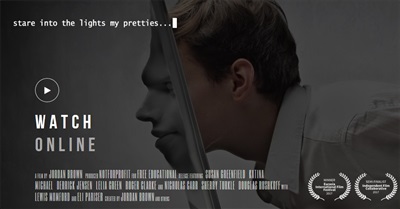
State of the World
Statewatch
![]()
Statistics for Action

Step It Up
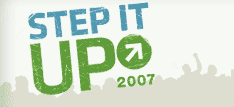
Still Relevant: What Makes an Action Nonviolent?
![]()
Stir It Up: Lessons in Community Organizing and Advocacy
Stockholm International Peace Research Institute – databases
![]()
Stockholm International Peace Research Institute
Stockholm International Peace Research Institute – Past News and Events
![]()
Stop EPR
![]()
Stop Fessenheim
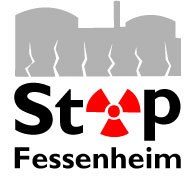
Stop Nuclear Power Network
![]()
Stop Whaling (Whale and Dolphin Conservation)
![]()
Stories of the Great Turning
